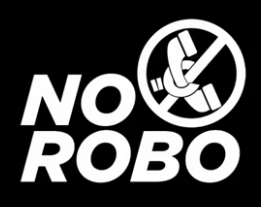On our first day of fundraising for the NoRobo Campaign, we had a exciting and scary moment when an article written about us appeared on Postmedia’s Canada.com. The tone was both critical and amused, but it was a pleasure to see her cite our assertion that the Robocall Scandal “is the biggest case of electoral fraud in Canada, ever.”
That might seem like a big statement until you know how easy it is to make it. During the 2011 federal election there were complaints of voter fraud in 247 of Canada’s 308 ridings. Three major polling companies estimate 690,000 voters got fraudulent calls telling them to vote in the wrong place. That’s almost three per cent of Canadian households!
Those facts are even more amazing when you realize the Conservative Government won its majority with just 6,000 votes in 13 ridings, and every one of those ridings are under suspicion of voter fraud. We don’t yet know who committed the crime, but the evidence clearly shows it benefitted the Conservatives.
Our campaign seeks to clearly demonstrate what we think is an obvious conclusion: without the voter fraud, the Conservatives may not have won a majority, meaning the legitimacy of their entire administration is in question.
But we could have stated it in a simpler way: Canada, your Emperor has no clothes.
The numbers don’t lie. The Harper government may have won a majority without the boost from voter fraud, but we doubt it. The best data available says they were likely to be returned with another minority instead. Not surprising, then, that every major poll before the election predicted the same.
If the facts are out there, why aren’t more people talking about it? As Canadian psychologist and Harvard Professor Steven Pinker so elegantly states in this RSA Animate video, “the Emperor’s clothes” is a tale about something called “mutual knowledge.” Basically, it means even if I know the Emperor is naked, and you know the Emperor is naked, no one is willing to say he’s naked until we’re sure that everyone else knows too.
Which bring me back to the Canada.com article. For the first time since the scandal, I saw her report our words into the mainstream press: the Conservatives “may not have won their majority without the confusion created by the robocalls.” To me, that moment was gold.
Many of the brightest journalists I know have told me they are outraged that someone trounced the democratic process like this, but their hands are tied. I get it. If there is one thing I’ve learned working for nearly 10 years for major Canadian news companies, it’s that the media considers its job is to report the news, not make it. Like a judge, they can give more weight to some arguments and less to others, but if the truth isn’t being spoken clearly, their hands are tied.
The Robocall Scandal is a hard truth to tell. The evidence is complicated, massive and has been dribbling out so slowly since the scandal that it has been hard to draw bold conclusions, much less report them.
In some ways, the media are not so different from the rest of us busy — distracted and overwhelmed with information. To get through the clutter, we need facts and arguments that aren’t just good, but amazing. Our strategy is designed with that in mind. First step, we make the evidence of voter fraud undeniable by visualizing it in an interactive map, and connecting it, riding by riding, to show how different things might have been if it all this illegal stuff hadn’t happened.
The next step is to tell the story, so we’re working on an animated short. If we have the budget to do it right, it will have all of the elements that makes videos go viral — funny, smart, empowering and so gorgeous that it’s a treat to watch just for the animation.
Finally, the “Reverse Robocall” campaign is our strategy to make sure that every MP and reporter in Ottawa is talking about this. In the age of email and the Blackberry, having your office phone ring all day every day is easy to work around, but much harder to ignore. But we’re Canadians, so it seems only polite to give them an easy way to make the calls stop — all they need to do is make a personal statement on whether they will take real action to get to the bottom of the scandal or not.
The MPs who agree to take action get political capital to do so. The ones that refuse just have to admit that publicly. We’re betting most of those MPs would rather hide, so to encourage them, we think it’s more than fair that they get calls, calls and more calls from concerned Canadian voters until they do. We’ll post their answers online so you can see what each MP says. Each one is both a national news story and a story for each of the 308 ridings they represent. If you want to get the whole country talking, we think this is a good place to start.
This kind of shift takes a big team, so what we need most now is you. Let’s start telling the truth. Please, help share our NoRobo campaign. If you can afford it, please donate.
Together, we can be the first child in the land to say the naked truth, and watch the message spread. If we succeed, we think Canadians of all political stripes can agree: the Emperor’s claim that is he wearing clothes isn’t enough to make it so.
Chriz Miller is media strategist and campaign manager with The NoRobo Co.




